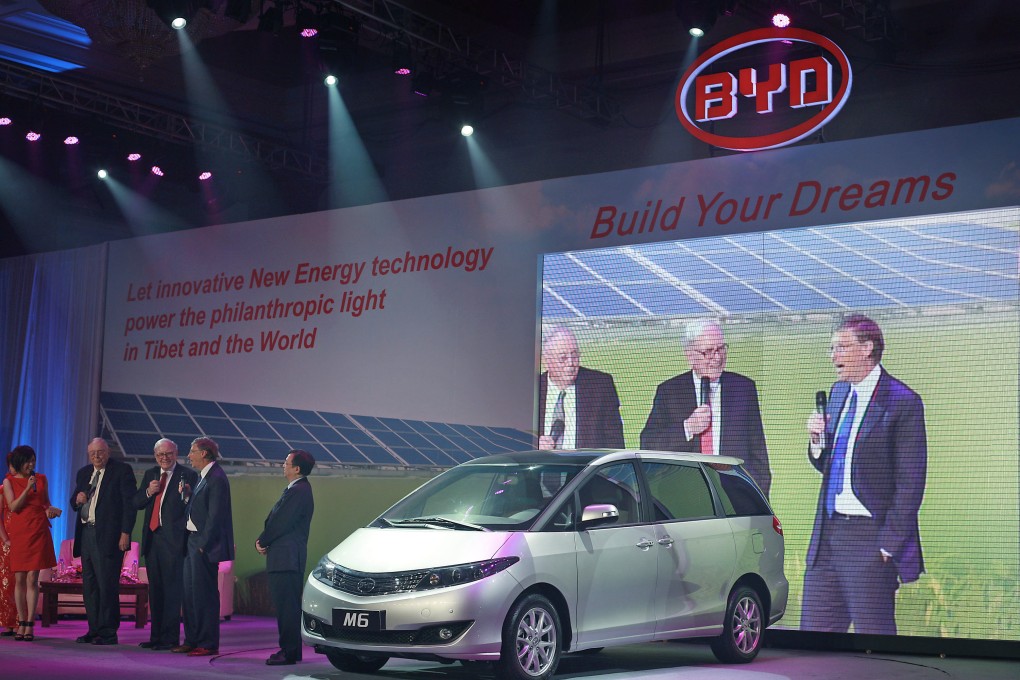BYD stock plunges after Buffett’s Berkshire trims stake in China’s biggest electric-car maker
- Stock plunges 12 per cent in Hong Kong after the legendary US investor appears to have trimmed stake in BYD for a second time
- Buffett’s Berkshire Hathaway cuts its holding in H shares on August 24 after weeks of speculation, according to exchange filing

Berkshire sold 1.33 million shares at an average of HK$277.10 apiece, valuing the sale at HK$369 million (US$47 million) on August 24, according to a regulatory filing to the Hong Kong stock exchange. The shares traded between HK$257 and HK$272.20 on that day.
BYD sank 7.9 per cent to HK$242.20 at the close of Wednesday trading, the most in seven weeks, in addition to a 0.5 per cent loss on Tuesday. The two-day rout erased about HK$71 billion of capitalisation from the Shenzhen-based company, according to Refinitiv data.
The sale came amid concerns China’s zero-Covid policy will disrupt the industry again after a series of lockdowns in key manufacturing bases hit factories producing electric vehicles and parts for Apple since last year. Power cuts this month have also roiled the industry, putting owners of 1 million EVs at risk as charging stations shut down.
